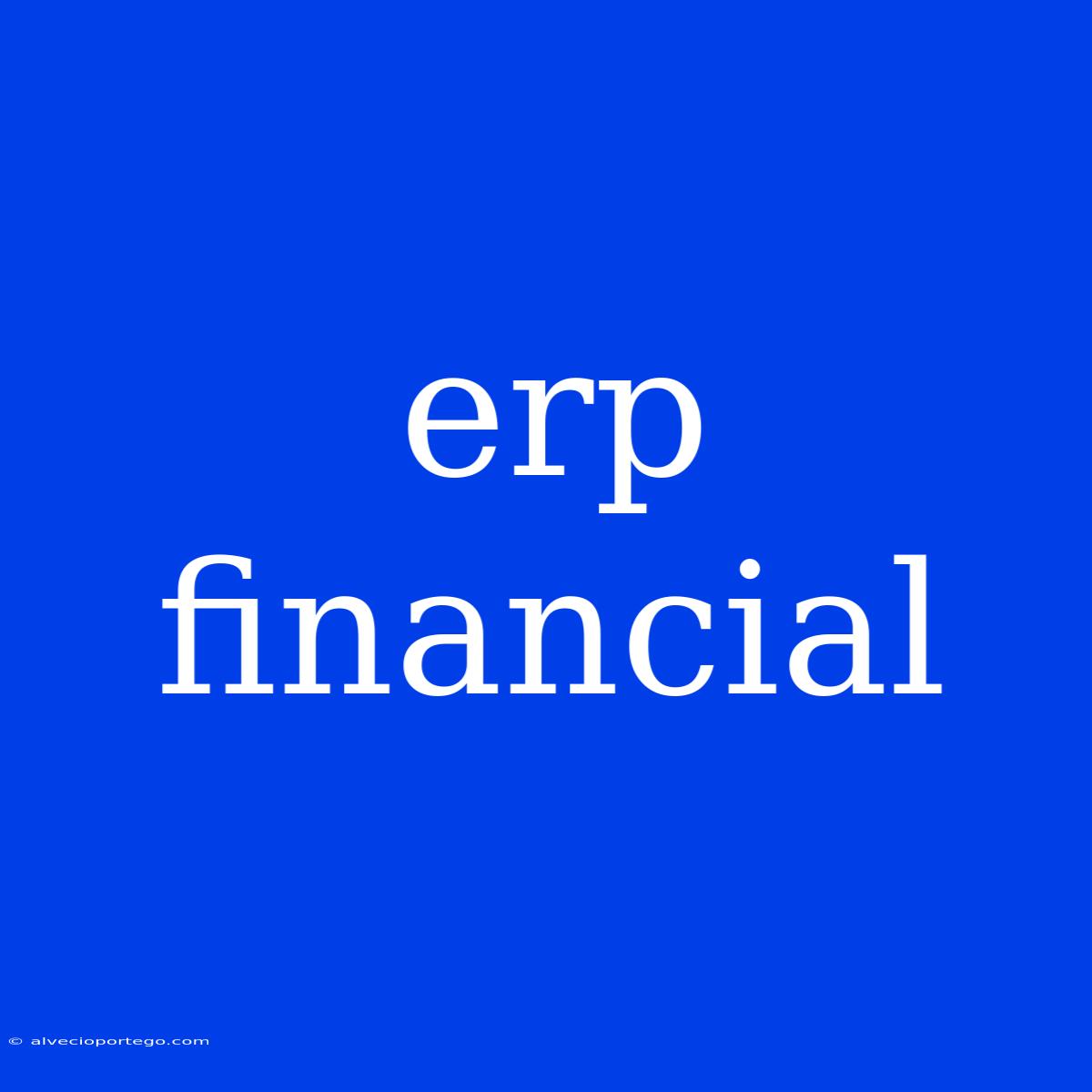ERP Financial: Streamlining Your Business Finances
Enterprise Resource Planning (ERP) systems are essential tools for businesses of all sizes, particularly when it comes to financial management. An ERP financial module consolidates various financial processes into a single platform, offering a comprehensive view of your company's financial health.
Key Benefits of ERP Financial:
1. Enhanced Financial Visibility:
- Real-time data access: Access real-time financial data, including cash flow, accounts payable and receivable, and financial reports.
- Improved reporting: Create detailed financial reports and dashboards to gain valuable insights into business performance.
- Consolidated data: Eliminate the need for multiple spreadsheets and manual data entry by consolidating all financial data in one place.
2. Automated Processes:
- Streamlined workflows: Automate tasks like invoice generation, payment processing, and expense tracking, reducing errors and freeing up staff time.
- Improved efficiency: Reduce manual work and eliminate redundancy, improving overall efficiency and productivity.
- Enhanced accuracy: Automated processes minimize human error, leading to more accurate financial data.
3. Improved Financial Control:
- Centralized budgeting: Create and manage budgets, track spending, and monitor budget adherence.
- Enhanced compliance: Ensure compliance with financial regulations and standards.
- Risk management: Identify and mitigate potential financial risks proactively.
4. Increased Collaboration:
- Real-time communication: Share financial information seamlessly with different departments within the organization.
- Improved decision-making: Make data-driven decisions based on real-time financial insights.
- Enhanced stakeholder communication: Communicate financial information to investors, partners, and other stakeholders with ease.
Components of ERP Financial Modules:
- General Ledger: Tracks all financial transactions and provides a comprehensive view of the company's financial position.
- Accounts Payable: Manages vendor invoices, payments, and reconciliation.
- Accounts Receivable: Tracks customer invoices, payments, and outstanding balances.
- Fixed Asset Management: Manages the lifecycle of fixed assets, including depreciation and asset disposal.
- Budgeting and Forecasting: Provides tools for creating and managing budgets, forecasting financial performance, and analyzing variances.
Choosing the Right ERP Financial Solution:
When selecting an ERP financial solution, consider your business needs, industry, and budget. Look for a system that:
- Offers a comprehensive set of financial modules.
- Provides robust reporting and analytical tools.
- Is scalable and customizable to your business needs.
- Integrates seamlessly with other existing business systems.
Investing in an ERP financial module can significantly improve your organization's financial management practices. This will lead to improved efficiency, greater transparency, and a solid foundation for informed decision-making.

